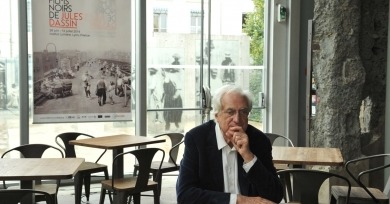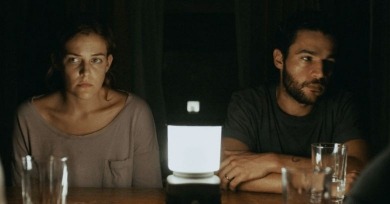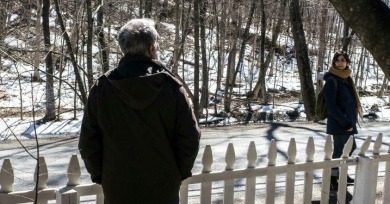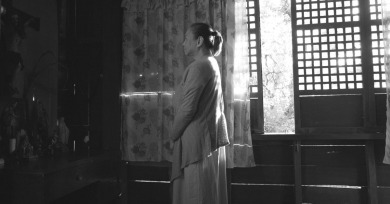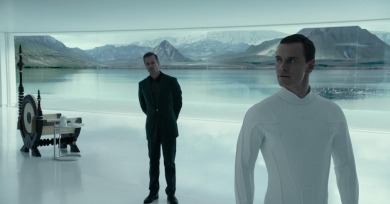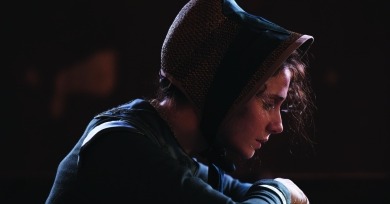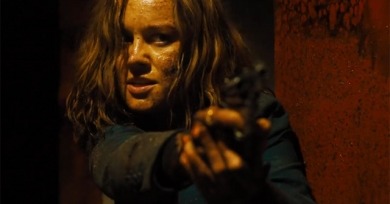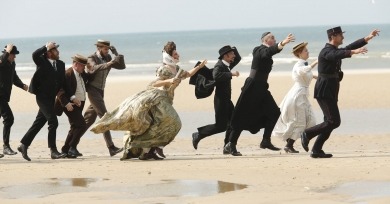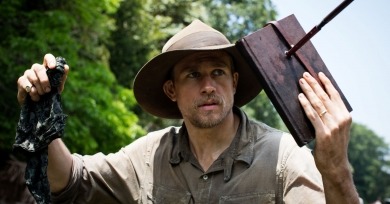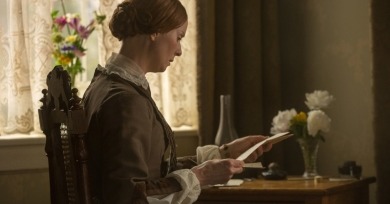Reviews
Amirpour seems to have placed herself in a cozily indulgent trance, mesmerized by the possibilities of deluxe, corporately subsidized cult filmmaking.
The Big Sick was directed by Michael Showalter, whose anarchic sensibility (as best represented in his absurdist sketch comedy troupes The State and Stella) is completely absent from the film.
Tavernier approaches his subject not only as a film lover but also as a film director who knows his way around a set, a man with an inexhaustible appetite for dish about behind-the-scenes goings on and an insatiable curiosity for what makes movies tick.
As the cinematic past increasingly recedes we will probably see a lot more films like Dawson City: Frozen Time, a documentary that attempts to reacquaint viewers with film as film at the same time as it eulogizes the former material basis of the medium.
The juxtaposition of different kinds of interiority, of a living space and a headspace being simultaneously invaded, is sophisticated and clever. It is also not quite enough to offset the accumulation of cliches that Shults uses to shape his story, which is little more than pretense for shows of stylistic force.
While the New York–set Hermia and Helena carries on the alternately fastidious and freewheeling sensibility of his previous Shakespeare films, it is the first to be set outside Argentina, as well as the only one thus far to engage with the Bard in English.
The comparatively bite-sized, almost four-hour The Woman Who Left feels like a work that could start to open Lav Diaz up to a larger U.S. audience in a way that Norte, the End of History, his last film distributed here did not.
The need to resolve the dangling narrative threads of popular works of art is truly a pox. If everything is spelled out, then there is no room left for mystery and imagination. It is always better to allow the mind to race just enough so that it deepens the things that we see and hear.
Over the course of a career that runs far deeper than just his 1994 groundbreaker Hoop Dreams, James has continually given classical documentary storytelling a good name.
An upper-crust costume drama without the courtly trappings or whalebone stiffness, the film has nary a tripod shot in sight, and moves along with a disconcerting, lurching motion.
Free Fire is often reminiscent of the cash-in Tarantino-esque titles that invaded video stores after Pulp Fiction, time capsules like 2 Days in the Valley, City of Industry, or 8 Heads in a Duffel Bag, rather than being a new or exciting thing of its own.
Without ever seeming to reign supreme over the European festival scene as, say, the Dardenne brothers or Michael Haneke have at various points, Dumont anticipates and exemplifies features of the contemporary art film to a greater degree than either of those Cannes mainstays.
The Lost City of Z is beautiful, all the more so for not being beautiful in the obvious ways. Working for the second time with cinematographer Darius Khondji, who also shot The Immigrant, Gray films both jungle and English countryside with long lenses and a shallow depth-of-field.
A Quiet Passion proposes the outwardly unspectacular life of Emily Dickinson not as the story of a no-hoper spinster but as an act of courage, the struggle of a woman to overmaster herself, to sacrifice her own life (and preserve her maidenhead) so that her work might live.


